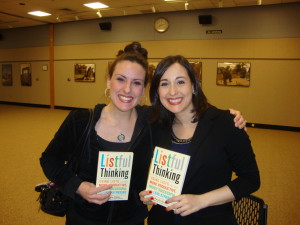 I always try to find productivity inspiration wherever possible. And the race for the presidency is no exception.
I always try to find productivity inspiration wherever possible. And the race for the presidency is no exception.
Hillary Clinton, Ted Cruz, Bernie Sanders, Rand Paul, Mike Huckabee, Carly Fiorina, Ben Carson and Marco Rubio recently announced a bid for the White House. And the usual eye rolling about non-stop campaigning is starting right along with it.
Now, without getting political, we should be asking why, if the election isn’t until late 2016, are they even bothering to start campaigning now? What do they gain from it? What does starting a major project early do for them? Does it actually help?
The simple answer is yes. A lot.
Using these candidates as a template, we can break down the different stages of getting a long-term project done:
Goal setting: Undoubtedly, long before they announced, these candidates and their team mapped out a pretty solid plan for the campaign. You need to have a hyper specific end goal in mind for any project.
What would that look like for any of these candidates? Surely not “Be elected president.” That is much too vague. More likely it would be something like “Achieve X number of votes”, or “Win states A, B, and C in the election.”
When you are setting your own long-term goals, remember to keep them as specific as possible. For example, if your goal is to lose weight you should have a specific number in mind. Be honest with yourself about what you really want.
Plan of action: Not only do you need a firm goal, but you need to understand how to break it down into manageable subgoals. For the Democratic presidential candidates, this might mean swaying certain swing states such as Ohio, while not spending very much time in liberal California. Likewise for the Republicans, states such as Texas are pretty “safe”, so they might try and spend more time winning over Florida’s votes.
Your own plan of action should have an equally well-defined path. Think about the day to day – what would be a realistic way to achieve your goals? For example, if you want to exercise more, would you do something every day, or on specific days of the week.
Prepare contingencies: If each candidate doesn’t win the state they deemed as most pivotal — then what? How do they regroup and refocus their attention? That’s the key — this is all predetermined with “if/then” scenarios laid out in advance.
In your own planning, you need to prepare for unforeseen consequences. I firmly believe in always having a backup plan.
Set things in motion: Perhaps strangely, this step is last on the list. The beauty in planning out for long-term goals is that it takes a lot of the guesswork out of the process. While we are only hearing about these candidates’ plans recently, they’ve probably known about this for months or even years. They certainly weren’t going to start campaigning until plans were set in stone. That gives them the freedom to dictate how the campaign will go, and not have the campaign dictate to them how it will go. The same thing should apply to your own goals.
How do you prepare for your own long-term goals?
 People often assume that coffee is the most productive drink as it helps keeps you going. However while coffee makes you feel more awake, it doesn’t really help you think any better. If you want to get more out of your day I would recommend switching to tea. The lower caffeine content in tea keeps you alert but doesn’t make you jittery. Tea can really start off your whole day in the best way, there are so many different types out there for people to try such as black, green, herbal, matcha, the list is endless!
People often assume that coffee is the most productive drink as it helps keeps you going. However while coffee makes you feel more awake, it doesn’t really help you think any better. If you want to get more out of your day I would recommend switching to tea. The lower caffeine content in tea keeps you alert but doesn’t make you jittery. Tea can really start off your whole day in the best way, there are so many different types out there for people to try such as black, green, herbal, matcha, the list is endless!






